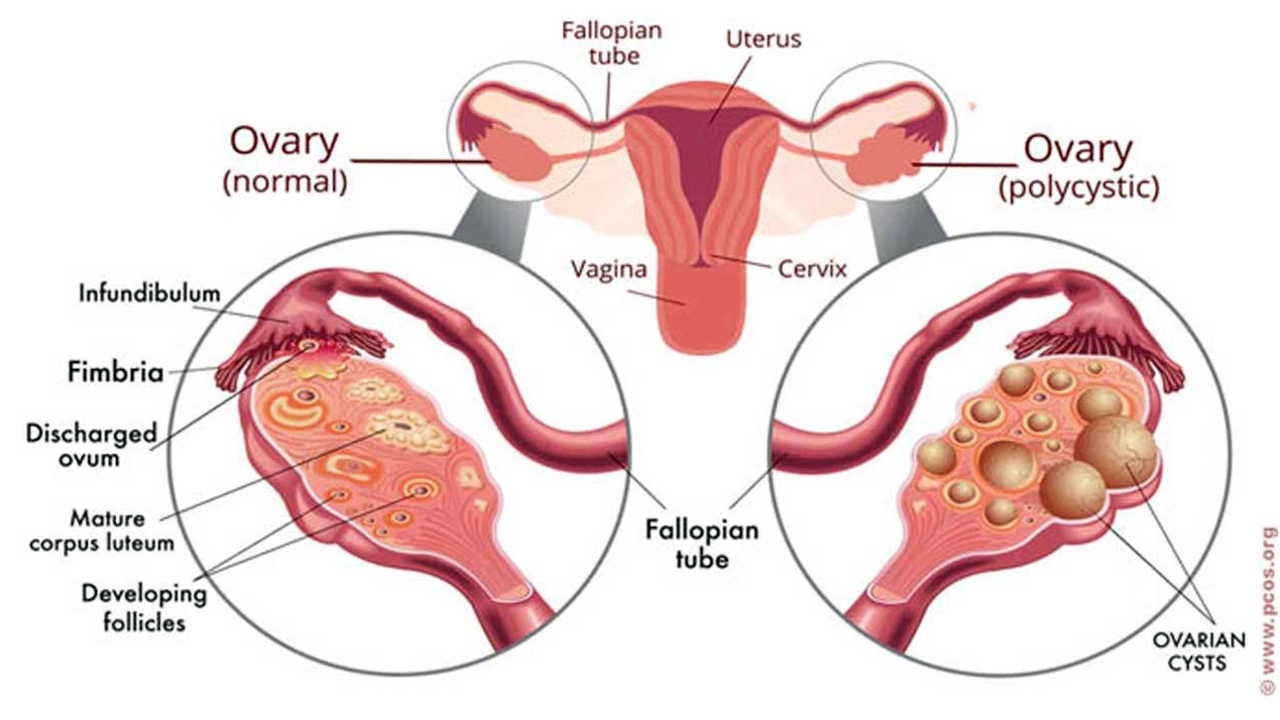Polycystic Ovary Syndrome (PCOS): What You Need to Know
If you’ve heard the term PCOS tossed around but aren’t sure what it really means, you’re in the right place. Polycystic ovary syndrome is a hormone‑related condition that affects many women of reproductive age. It’s not just about "cysts" on the ovaries – the real issue is an imbalance of hormones that can mess with periods, weight, skin and fertility.
First off, PCOS shows up differently for each person. Some women notice irregular periods or missed cycles, while others struggle with acne, extra hair growth (called hirsutism), or stubborn weight gain around the belly. The common thread is that the ovaries produce more male‑type hormones called androgens, which throw off the normal menstrual rhythm.
Common Signs and Why They Happen
Irregular periods are often the first red flag. When ovulation doesn’t happen regularly, the lining of the uterus builds up and then sheds unpredictably – that’s why you might get very light bleeding, heavy spotting or no bleed at all for months.
Acne and oily skin? Those are also androgen‑driven effects. The extra hormones tell the oil glands to work overtime, leading to breakouts that can linger into adulthood.
Weight gain around the midsection isn’t just a diet issue; insulin resistance is common in PCOS. Your body’s cells don’t respond well to insulin, so the pancreas makes more of it. High insulin levels can boost androgen production, creating a cycle that’s hard to break.
And if you’re trying to get pregnant, know that irregular ovulation can make conception tougher. About 10‑15 % of women with PCOS face fertility challenges, but the good news is many can achieve pregnancy with lifestyle changes or medication.
Practical Ways to Manage PCOS Daily
Start with your plate. A balanced diet that’s lower in refined carbs and higher in fiber helps keep insulin levels steady. Think whole grains, legumes, plenty of veggies, lean protein and healthy fats like avocado or nuts. Some women find a Mediterranean‑style eating pattern works well.
Movement matters more than you think. Even moderate exercise – 30 minutes of brisk walking, cycling or dancing most days – improves insulin sensitivity and can help trim belly fat. You don’t need marathon training; consistency beats intensity.
If your periods are really irregular, a doctor might suggest birth control pills. They regulate cycles, lower androgen levels and often improve acne. For those focusing on fertility, medications like clomiphene or letrozole can trigger ovulation.
Don’t overlook stress management. Chronic stress raises cortisol, which can worsen insulin resistance. Simple habits like deep‑breathing, yoga, or a favorite hobby can keep stress in check.
Finally, stay informed and talk to a healthcare professional who knows PCOS. Regular blood work can track hormone levels, cholesterol and glucose, letting you adjust treatment as needed.
Living with PCOS isn’t a one‑size‑fits‑all journey, but these everyday steps give you control over symptoms and improve long‑term health. Keep experimenting to find what works for your body, and remember that small changes add up over time.
Cyproterone Acetate for Polycystic Ovary Syndrome (PCOS): Pros and Cons
Alrighty folks, let's dive into the nitty-gritty of Cyproterone Acetate for Polycystic Ovary Syndrome, or PCOS as it's more commonly known. It's like a magic potion, right? Well, not quite. On the plus side, it can help manage those pesky symptoms like excess hair and acne. But, like a bad date, it comes with some baggage - potential liver damage and blood clots are part of the deal. So, it's kind of like a superhero with a dark side. Remember, every rose has its thorn, even when dealing with PCOS treatments!
More
